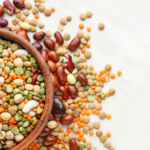Learn how and what Okinawan people eat and the benefits of their healthy habits
Many people are focused on the Mediterranean diet when it comes to wanting to live longer and be healthy with a lower chance of contracting diseases. Not as many people give the Okinawan diet a chance and incorporate some of their superfoods into their daily food ritual. Below is a free research article for anyone to read and learn more about why the Okinawan diet is so beneficial for you, and how you can adapt some Okinawan healthy eating habits to your own diet. Hopefully, you will gain some of their lifespan and healthspan (healthy lifespan) benefits, as well!
Healthy aging diets other than the Mediterranean: a focus on the Okinawan diet
- PMID: 24462788
- PMCID: PMC5403516
- DOI: 10.1016/j.mad.2014.01.002
Click here to read the full article→
Abstract
The traditional diet in Okinawa is anchored by root vegetables (principally sweet potatoes), green and yellow vegetables, soybean-based foods, and medicinal plants. Marine foods, lean meats, fruit, medicinal garnishes and spices, tea, alcohol are also moderately consumed. Many characteristics of the traditional Okinawan diet are shared with other healthy dietary patterns, including the traditional Mediterranean diet, DASH diet, and Portfolio diet. All these dietary patterns are associated with reduced risk for cardiovascular disease, among other age-associated diseases. Overall, the important shared features of these healthy dietary patterns include: high intake of unrefined carbohydrates, moderate protein intake with emphasis on vegetables/legumes, fish, and lean meats as sources, and a healthy fat profile (higher in mono/polyunsaturated fats, lower in saturated fat; rich in omega-3). The healthy fat intake is likely one mechanism for reducing inflammation, optimizing cholesterol, and other risk factors. Additionally, the lower caloric density of plant-rich diets results in lower caloric intake with concomitant high intake of phytonutrients and antioxidants. Other shared features include low glycemic load, less inflammation and oxidative stress, and potential modulation of aging-related biological pathways. This may reduce risk for chronic age-associated diseases and promote healthy aging and longevity.
Keywords: DASH; Diet; Healthy aging; Longevity; Okinawa; Portfolio.
